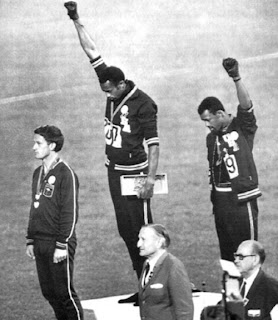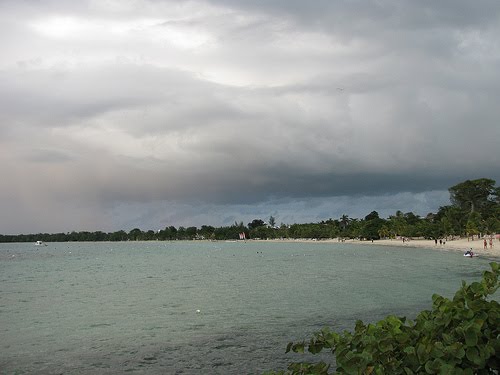At the time I’m writing this in June/July of 2012, every muscle of my middle aged body is aware that this is an Olympic year. Which means that if the TV network that airs the Olympics in the US doesn’t screw it up like in previous years, I will be transfixed and transported in front of the TV again, just as I was when I was a kid. To me nothing compares to the Olympics. There is no other sporting event, no post season madness, bowl game, or cup final that compares to the romance, heart and drive the Summer Olympics have for me. It’s where I learned things that school would never teach me. Sitting in front of my black and white TV as a 10 year old in 1968, I was there. The glow of the cathode ray tube may have been in South Philadelphia, but in ‘68 my soul was in Mexico City.
I lived with my mother and maternal grandparents. My older sister lived there too, but by that time she was either off at college or working somewhere. And since my mother worked two jobs to support us all, I watched all TV, including the ’68 Olympics, either by myself or with my grandfather, a former boxer. Whenever boxing was on, Olympics or not, and especially when there were black boxers fighting, like the then 19 year old George Foreman who won the gold medal that year fighting a Russian, my grandpop watched. And during the middle of that James Bond / Man From U.N.C.L.E., cold war era of ‘68, as George stood tall, my grandpop cheered, even though he could barely see the bouts. My grandpop was then blind in one eye and had bad sight in the other, so he watched our TV with his face inches from the screen. And still he couldn’t see clearly. Watching boxing with grandpop sounded something like this:
“Hey, is he black?”
“Yes grandpop, he’s black.”
“And what about that guy?”
“No he’s from Poland – not black.”
“Are you sure? Play with that knob on the side again.”
“I can play with the contrast knob all day grandpop, but the Polish guy is not black.”
Even though my Mexico City Olympic experience was seen from an acute angle in order to see around my grandpop, whose forehead kissed the screen, I was still transported.
“Yes grandpop, he’s black.”
“And what about that guy?”
“No he’s from Poland – not black.”
“Are you sure? Play with that knob on the side again.”
“I can play with the contrast knob all day grandpop, but the Polish guy is not black.”
Even though my Mexico City Olympic experience was seen from an acute angle in order to see around my grandpop, whose forehead kissed the screen, I was still transported.
 |
| Jim Hines winning the 100m dash. |
 |
| And that other guy? Australian Peter Norman won silver and on the podium wore the badge for the Olympic Project for Human Rights. He was left off the 1972 Australian team. |
This was a relationship with water that I knew nothing about. That one could be on the highest part of the earth, essentially be a part of the sky, and fling themselves elegantly into the waiting arms of the water below. I know that I could never judge such a competition. It would be like grading prayer. How does one measure individual skill, wrapped so tightly in faith, belief and the wisdom of knowing how to navigate so quickly through the worlds of earth, sky and water. “You get the gold, you get the silver, and you the bronze.” Yeah, whatever. At 10 years old in 1968 I learned that success sometimes means taking a leap, falling with grace, and even with a tiny splash, celebrating life.



